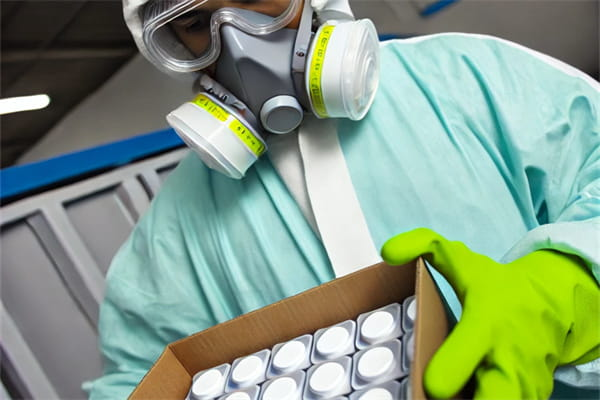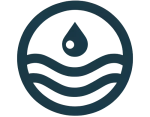Choosing the best chlorine tablets for your industrial plant is crucial for ensuring effective water treatment and maintaining compliance with environmental regulations. With so many options on the market, it can be challenging to decide which chlorine tablets are right for your needs. In this blog, we’ll guide you through the process of selecting the best chlorine tablets by exploring the different types available, understanding your plant’s specific needs, and considering various practical factors. By the end of this article, you’ll be equipped with the knowledge to make an informed decision that benefits both your plant and the environment.

Understanding the Types of Chlorine Tablets
Before selecting chlorine tablets, it’s essential to understand the basic types available on the market. Here are the main types:
1.Fast-dissolving Chlorine Tablets:
These tablets dissolve quickly, making them ideal for immediate disinfection needs. They are often used in scenarios where a rapid increase in chlorine levels is necessary to control microbial growth or react to contamination events.
2.Slow-dissolving Chlorine Tablets:
Designed to release chlorine gradually, these are perfect for continuous, long-term disinfection. They are suited for maintaining consistent chlorine levels over time, which is beneficial in systems like cooling towers and large storage tanks.
3.Trichlor Tablets:
Known for their high chlorine content and slow dissolution rate, making them suitable for sustained disinfection. Trichlor tablets are often used in applications where a steady, prolonged release of chlorine is needed.
4.Dichlor Tablets:
These dissolve faster than Trichlor tablets and are often used for shock treatments due to their quick action. Dichlor tablets are ideal for situations where a rapid boost in chlorine concentration is required.
Understanding Your Plant’s Needs
The next step is to understand the specific requirements of your industrial plant. This involves assessing various factors related to water treatment.
1.Water Quality Needs:
Determine the type of water you need to treat (e.g., raw water, cooling water, wastewater) and its specific characteristics. For instance, the presence of organic matter, pH levels, and temperature can all influence the effectiveness of chlorine tablets.
2.Treatment Goals:
Identify your primary objectives, such as controlling microbial growth, preventing scale and corrosion, or maintaining regulatory compliance. Understanding these goals will help you choose the right type of chlorine tablet and the correct dosage.
3.Application Area:
Understand where the chlorine tablets will be used, such as cooling towers, wastewater treatment systems, or industrial cleaning processes. Different applications might require different types of chlorine tablets and usage strategies.
Making the Right Choice
Now that you have a clear understanding of the types of chlorine tablets and your plant’s specific needs, it’s time to make an informed choice. Consider the following factors:
1. Identify Specific Needs
Water Quality Requirements: Assess the type of water and its quality parameters that need to be treated. This includes testing for contaminants, organic load, and other factors that might affect chlorine efficacy.
Treatment Objectives: Clearly define what you aim to achieve with the chlorine tablets (e.g., microbial control, algae prevention). Having clear goals helps in selecting the right product and using it effectively.
2. Choose the Right Type of Chlorine Tablets
Fast-dissolving vs. Slow-dissolving: Select fast-dissolving tablets for immediate action or slow-dissolving tablets for continuous, long-term disinfection. The choice depends on whether you need a quick response or sustained chlorine levels.
Trichlor vs. Dichlor: Choose Trichlor tablets for slow, sustained release or Dichlor tablets for quick, shock treatment. This decision should be based on your specific disinfection needs and the nature of your water system.
3. Control the Dosage
Calculate the Correct Amount: Based on your plant’s system capacity and requirements, accurately calculate the dosage to avoid overuse, which can harm the environment and equipment. Use guidelines provided by the manufacturer and adjust as needed based on regular monitoring.
Regular Monitoring: Continuously monitor chlorine levels to maintain optimal dosage and effectiveness. This can be done using chlorine test kits or automated monitoring systems.
4. Consider the Ingredients
Safe Formulations: Opt for chlorine tablets that contain safe, non-toxic ingredients suitable for industrial applications. Ensure that the product is designed for the specific type of water you are treating.
Avoid Harmful Additives: Steer clear of products with additives that might be harmful to your plant’s equipment or the environment. Look for chlorine tablets that are labeled as environmentally friendly.
5. Environmental Considerations
Eco-friendly Products: Choose chlorine tablets that are environmentally friendly and ensure treated water discharge meets environmental regulations. This includes checking for any certifications or compliance with local environmental standards.
Proper Waste Management: Implement proper waste management practices for any by-products resulting from chlorine tablet use. This might involve neutralizing excess chlorine before discharge or ensuring that residue is disposed of safely.
6. Ensure Safe Usage
Safety Protocols: Follow stringent safety protocols for storing, handling, and using chlorine tablets to protect plant workers. This includes wearing protective gear and ensuring proper ventilation in storage areas.
Protective Equipment: Ensure employees use appropriate protective gear when handling chlorine tablets, such as gloves, goggles, and respirators if necessary.
7. Regulatory Compliance
Understand Regulations: Stay informed about local, national, and international environmental and safety regulations related to chlorine use. This includes understanding any limits on chlorine discharge and specific handling requirements.
Maintain Compliance: Ensure that your plant’s use of chlorine tablets complies with all relevant regulations to avoid legal issues. Keep accurate records of chlorine use and disposal to demonstrate compliance during inspections.
8. Check Equipment Compatibility
Compatibility with Existing Systems: Verify that the chlorine tablets you choose are compatible with your plant’s existing water treatment systems. This involves checking that the tablets can be used with your dosing equipment and do not cause corrosion or other issues.
Prevent Equipment Damage: Avoid products that could cause corrosion or other damage to your plant’s equipment. Regular maintenance and monitoring can help identify any issues early.
By following these guidelines, you can choose the best chlorine tablets for your industrial plant, ensuring efficient water treatment, regulatory compliance, and environmental responsibility. Make informed decisions to maintain the health and safety of your plant and its workers while contributing to a sustainable future.

 Instant
Quote
Instant
Quote Email
Us
Email
Us